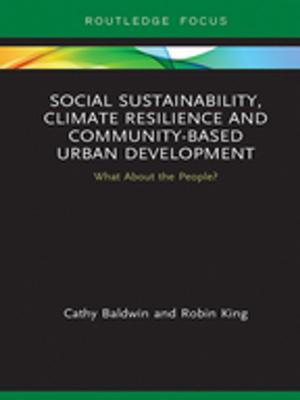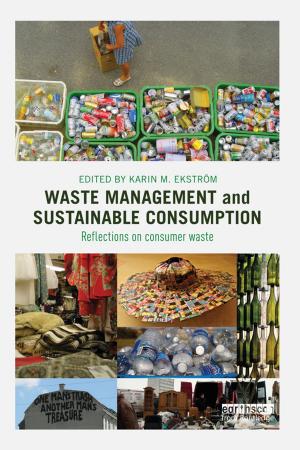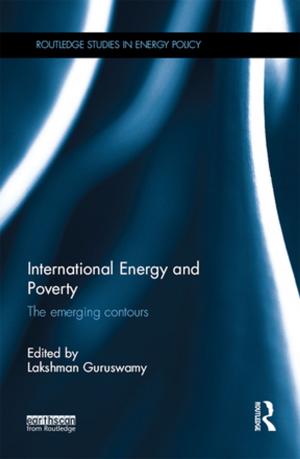Walking the Talk: Engaging the Public to Build a Sustainable World
Nonfiction, Social & Cultural Studies, Political Science, Government, Public Policy| Author: | Bill Hulet | ISBN: | 9780993839504 |
| Publisher: | Bill Hulet | Publication: | July 8, 2014 |
| Imprint: | Smashwords Edition | Language: | English |
| Author: | Bill Hulet |
| ISBN: | 9780993839504 |
| Publisher: | Bill Hulet |
| Publication: | July 8, 2014 |
| Imprint: | Smashwords Edition |
| Language: | English |
The human race is facing an existential crisis in the form of climate change, yet most of humanity---even if it believes in global warming---seems incapable of making the lifestyle changes necessary to prevent the worst from taking place. _Walking the Talk_ argues that this is because the traditional methods of mobilizing the public to deal with existential threats---faith and duty---have become totally debased in the minds of most people. For the majority, all that has been left is the flaccid consumer-society ideals of "self-actualization" and "follow your bliss", neither of which are capable of motivating the public to do the heavy lifting necessary to build a sustainable world.
At the same time, the minority who still adhere to faith and duty have become the willing minions of leaders who actively fight against sustainability. This is the state that W.B. Yeats described so well: "The best lack all conviction, while the worst are filled with passionate intensity." The majority of the population that is concerned about climate change seems paralyzed into inaction while the minority of deniers seem to be able to consistently derail any sort of meaningful change.
The author, Bill Hulet, suggests that faith, duty, self-actualization and “follow your bliss” should be replaced by what he calls "practical philosophies". These are world views that give meaning and direction to life in the same way that faith and duty did for past generations, but which do not come through slavish devotion to either revealed religion or nationalism. Instead, they are created through reasoned discussion among an engaged citizenry. This process, which he calls “the community of the dialogue” allows people to create meaning while at the same time retaining personal freedom and a commitment to rationality. Hulet illustrates this way of creating meaning through examples drawn from the ancient Greco-Roman schools of Stoicism and Cynicism as well as the Eastern philosophies of Buddhism and Daoism.
Mr. Hulet draws upon both the example of Mahatma Gandhi and his own personal experience as an activist to illustrate the opportunities and pitfalls that face people in their quest to create a better world. As well, he offers a suggestion about how a new mass movement could be created that would use the community of the dialogue and symbolic acts to engage the public in work to build a better world. A practical as well as theoretical book, _Walking the Talk_, offers hope for people who not only despair about nature, but humanity as well.
It is possible for “the best” to have “passionate intensity” too!
The human race is facing an existential crisis in the form of climate change, yet most of humanity---even if it believes in global warming---seems incapable of making the lifestyle changes necessary to prevent the worst from taking place. _Walking the Talk_ argues that this is because the traditional methods of mobilizing the public to deal with existential threats---faith and duty---have become totally debased in the minds of most people. For the majority, all that has been left is the flaccid consumer-society ideals of "self-actualization" and "follow your bliss", neither of which are capable of motivating the public to do the heavy lifting necessary to build a sustainable world.
At the same time, the minority who still adhere to faith and duty have become the willing minions of leaders who actively fight against sustainability. This is the state that W.B. Yeats described so well: "The best lack all conviction, while the worst are filled with passionate intensity." The majority of the population that is concerned about climate change seems paralyzed into inaction while the minority of deniers seem to be able to consistently derail any sort of meaningful change.
The author, Bill Hulet, suggests that faith, duty, self-actualization and “follow your bliss” should be replaced by what he calls "practical philosophies". These are world views that give meaning and direction to life in the same way that faith and duty did for past generations, but which do not come through slavish devotion to either revealed religion or nationalism. Instead, they are created through reasoned discussion among an engaged citizenry. This process, which he calls “the community of the dialogue” allows people to create meaning while at the same time retaining personal freedom and a commitment to rationality. Hulet illustrates this way of creating meaning through examples drawn from the ancient Greco-Roman schools of Stoicism and Cynicism as well as the Eastern philosophies of Buddhism and Daoism.
Mr. Hulet draws upon both the example of Mahatma Gandhi and his own personal experience as an activist to illustrate the opportunities and pitfalls that face people in their quest to create a better world. As well, he offers a suggestion about how a new mass movement could be created that would use the community of the dialogue and symbolic acts to engage the public in work to build a better world. A practical as well as theoretical book, _Walking the Talk_, offers hope for people who not only despair about nature, but humanity as well.
It is possible for “the best” to have “passionate intensity” too!















